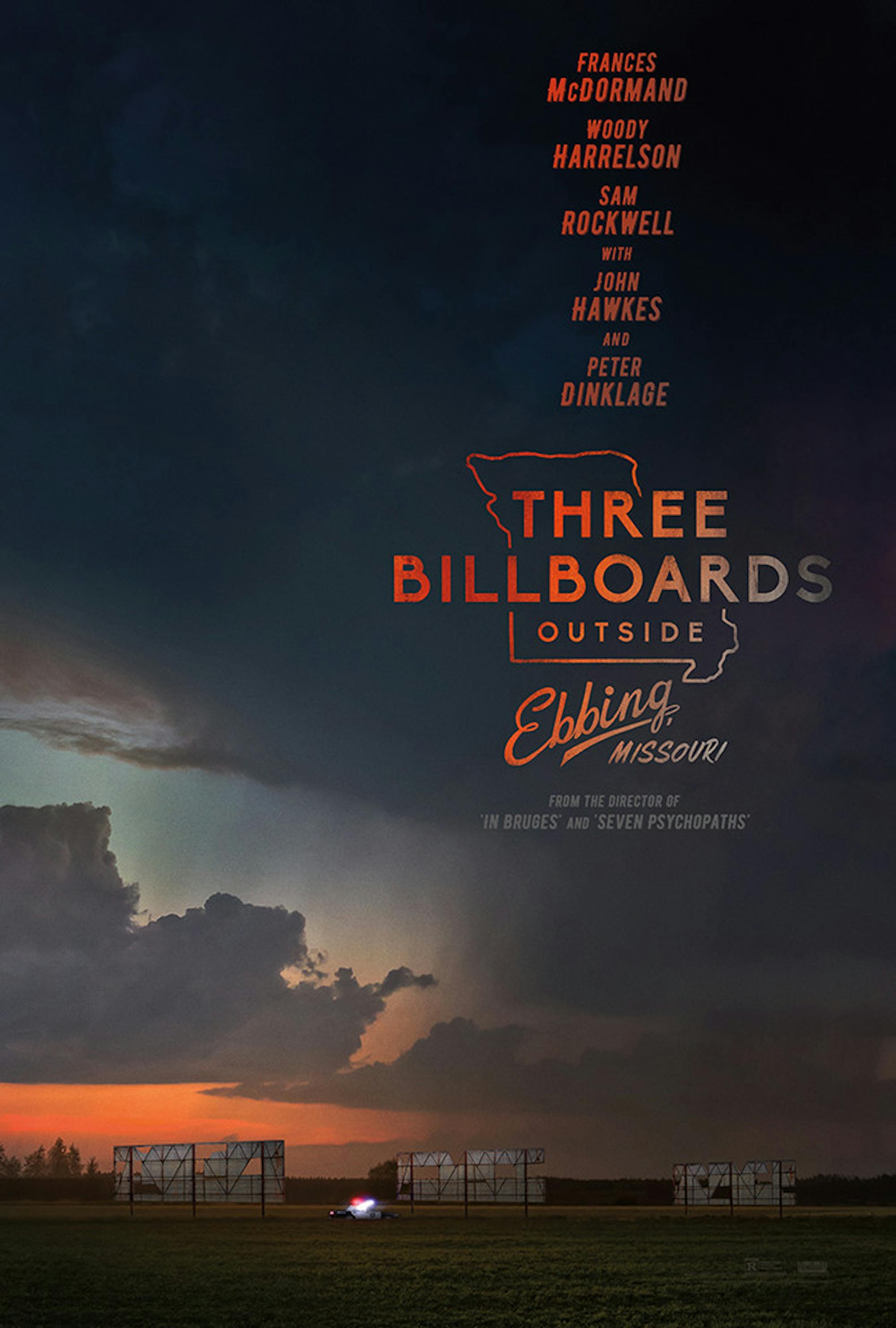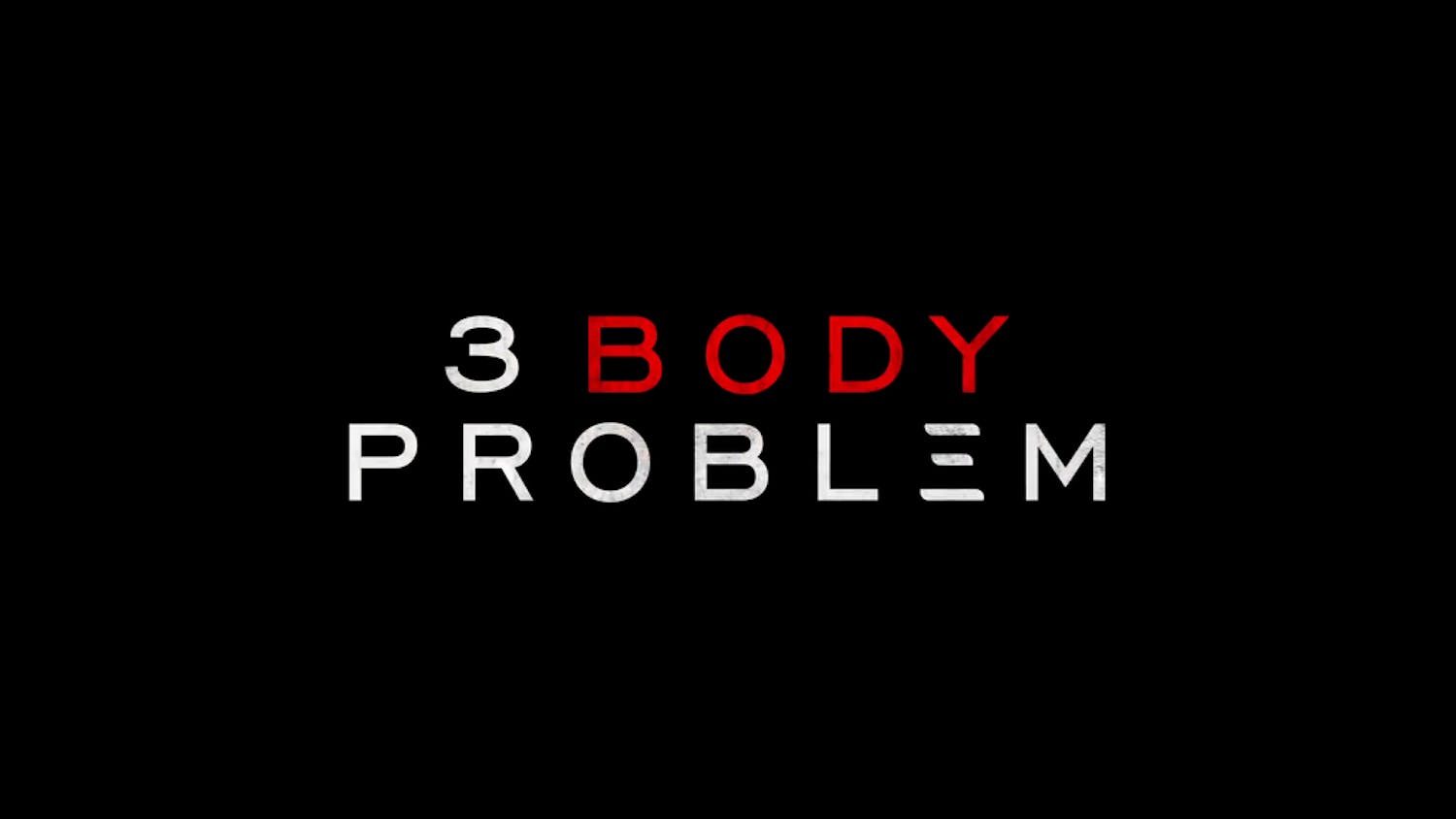Content warning: this article mentions sexual assault.
A murderer is on the loose, racial tensions are climbing and the beloved police chief will die from pancreatic cancer within the month. But one thing’s for sure: Mildred Hayes has had enough.
Mildred, played by Frances McDormand in her best performance since “Fargo” (1996), is the tough-talking star of “Three Billboards Outside Ebbing, Missouri" (2017). The film was written, produced and directed by Martin McDonagh, who has established a cult following for his dark comedies “In Bruges” (2008) and “Seven Psychopaths” (2012). “Three Billboards,” released in the United States on Nov. 10, is one of the darkest and funniest dark comedies in recent memory. The cause of Mildred’s epic fury, and the catalyst for the chaotic plot, can be summed up on the three titular billboards. They read, in succession, “Raped while dying”; “And still no arrests”; “How come, Chief Willoughby?”
Seven months prior to the film's action, Mildred’s teenage daughter Angela was brutally assaulted and lit on fire, but no suspects or DNA matches were found.The rest of the town seems to have moved on. In the first shot of the film, a man reads Flannery O’Connor’s “A Good Man is Hard to Find” (1953) — a bad omen if there ever was one. This is a world where nothing has changed or grown and senseless violence looms in the past and present. Mildred is the one to tear it all down with wild, increasingly illegal acts in the name of vengeance.
The targeted Sheriff Bill Willoughby, played by Woody Harrelson, has enough on his shoulders. He’s battling an increasingly debilitating illness, has to constantly run after the incompetent, dull Officer Jason Dixon (Sam Rockwell) and harbors genuine sympathy over the Angela case. Despite all this, he finds himself in, as he puts it, a chess match with Mildred. He has the support of the town on his side, but she’s getting the media’s attention. Mildred won’t pull any punches; as her son points out, she couldn’t just write that her daughter died or that her daughter was raped. No, the sign had to read, “Raped while dying.” Who could drive by without a deep twinge in their gut?
The painful lesson of “Three Billboards” is that injustice cannot always be redeemed with justice, nor bad with good. Mildred is hardly a perfect character. She is insensitive and aggressive with her son and, in the past, with her daughter. She refuses to accept that the DNA from the crime has matched no records in the state, and the police can look no more. She is rude and ableist to the local man at the bar with dwarfism played by Peter Dinklage, who just wants to have dinner with her. She is violent and impulsive, but justified. Like Sophocles’ Antigone, she puts her world and reputation on the line to fight the law in the name of justice. The problem here is that there’s no real justice to be had.
Well, no justice in Angela’s case at least. It is clear from the beginning of the film that the police force, Officer Dixon in particular, picks on and harasses the town's black residents. When Dixon first sees the billboard and demands an explanation from the worker putting up the signs, the worker, who’s black, spits in front of the police car. It’s a small act, but it gives the impression that certain members of the community are getting fed up along with Mildred. As she says on local TV, “The police department is too busy torturing black folks to solve actual crime.” But what makes “Three Billboards”’ treatment of race issues so different from other socially conscious movies is that it has its moments of biting, brilliant humor, like when Dixon responds to the worker by stuttering and trying to invent a reason to arrest him.
In “Three Billboards,” the jokes are insensitive and the characters mock almost every demographic in the United States — politically correct, it’s not. But just as fire is fury and destruction, it can also be cleansing. Despite its brutality, the film has real, raw moments. It’s not a Tarantino-style revenge movie. It’s a movie about grief and tenderness and toughness all in one, with rough, welcome satire in between.
'Three Billboards' mixes revenge, grief and humor into one

The poster of "Three Billboards Outside Ebbing, Missouri" (2017), a black comedy-drama film co-produced by Film4 and Fox Searchlight Pictures, is shown.
Summary
"Three Billboards Outside Ebbing, Missouri" is a triumph for Martin McDonagh and sees Frances McDormand shine in the lead role.
5 Stars





